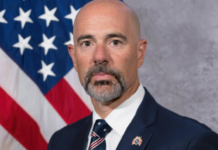WASHINGTON– Just days after President Donald Trump signed a proclamation imposing steep new restrictions on the H-1B visa program, a new report suggests the policy could backfire by accelerating the relocation of high-value work to India.
The report argues that the administration’s latest measures — including a $100,000 fee on each new H-1B application — will push American firms to expand their operations at global capability centers (GCCs) in India. These centers, run directly by multinational corporations, manage everything from finance to research and development.
“Plans are already underway for such a shift, pointing to greater activity in areas such as financial services and tech, and particularly among firms with exposure to U.S. federal contracts,” the report noted. “GCCs are uniquely positioned for this moment. They serve as a ready in-house engine.”
Rohan Lobo, a partner and GCC industry leader at Deloitte India, told the publication he was aware of “several U.S. firms reassessing their workforce needs” following the visa changes.
If the restrictions remain in place, experts expect companies to relocate more advanced work — tied to artificial intelligence, cybersecurity, product development, and data analytics — to their India-based centers, while retaining only their most strategic functions in the United States.
Trump signed the proclamation on September 19, arguing the move would create “an incentive to hire American workers.” The announcement, however, sowed confusion over whether current H-1B holders would be affected.
The White House later clarified that the $100,000 fee applies only to new applications, not to renewals or existing visas. Days later, the Department of Homeland Security unveiled a separate proposal to scrap the lottery system for H-1B allocation and replace it with a weighted selection process designed to favor higher-skilled applicants.
The H-1B visa program, which allows U.S. companies to hire foreign workers in specialized fields, has long been a pillar of the American tech and services industries. Critics warn the latest crackdown could undermine that very sector by driving talent — and critical operations — abroad. (Source: IANS)














